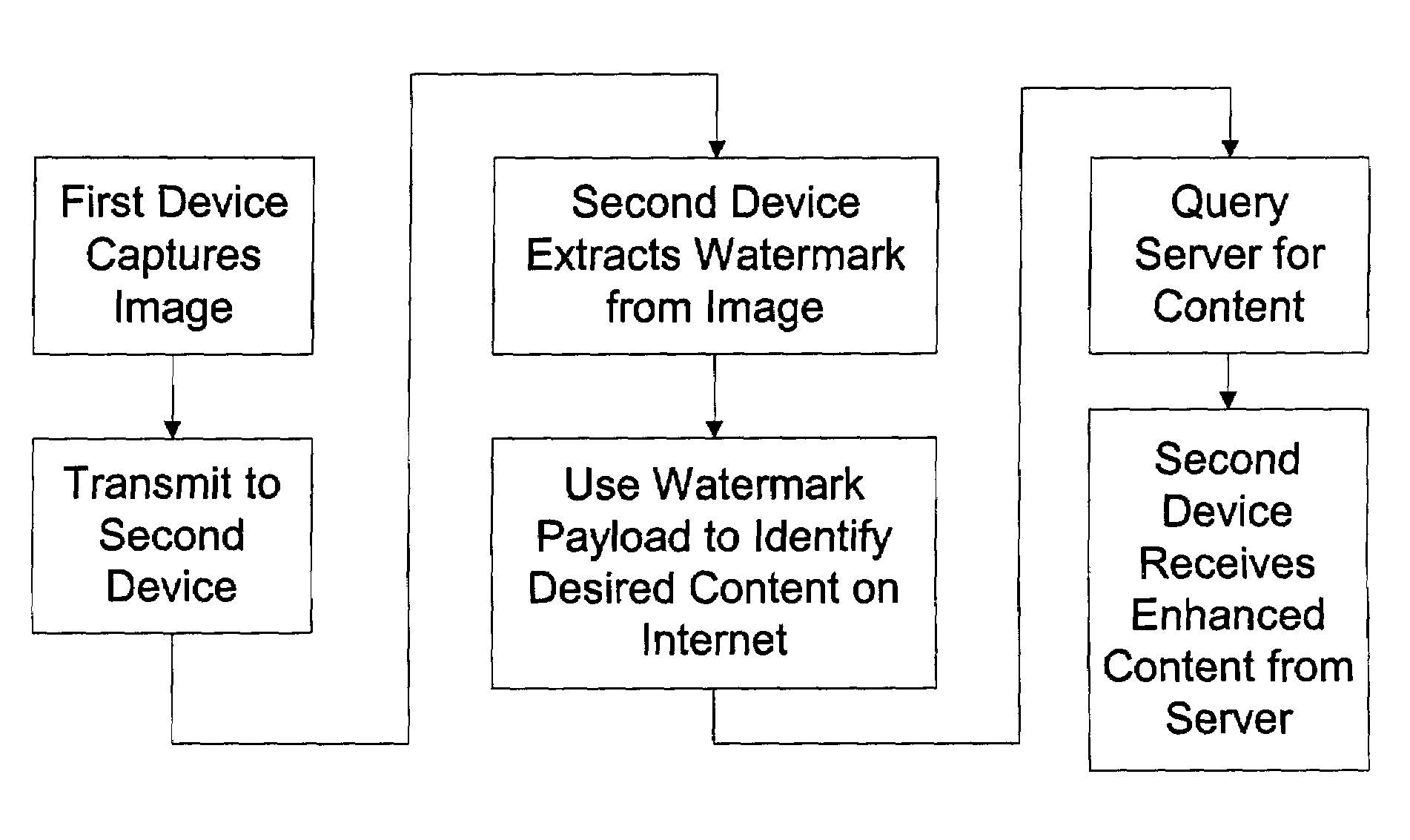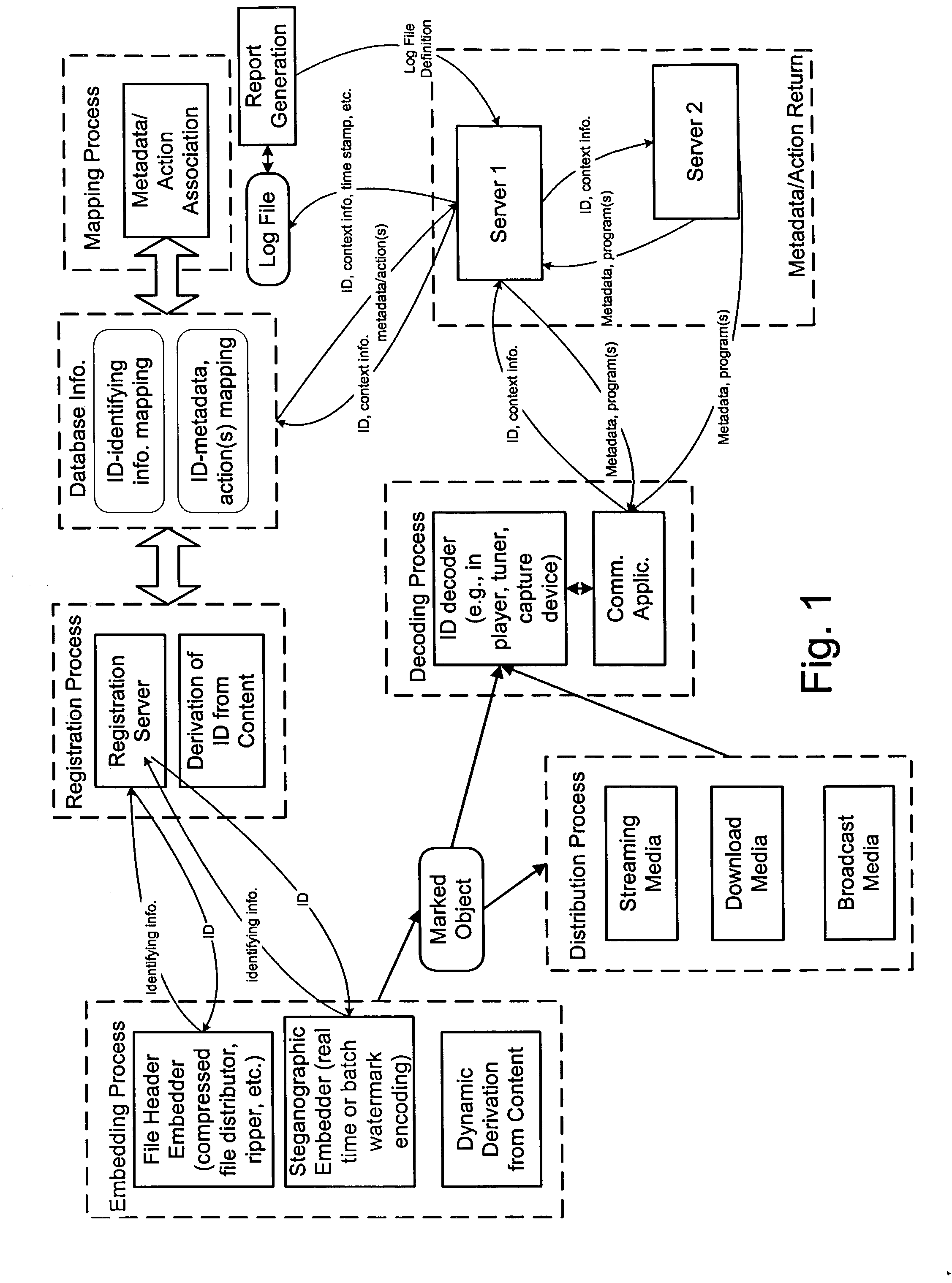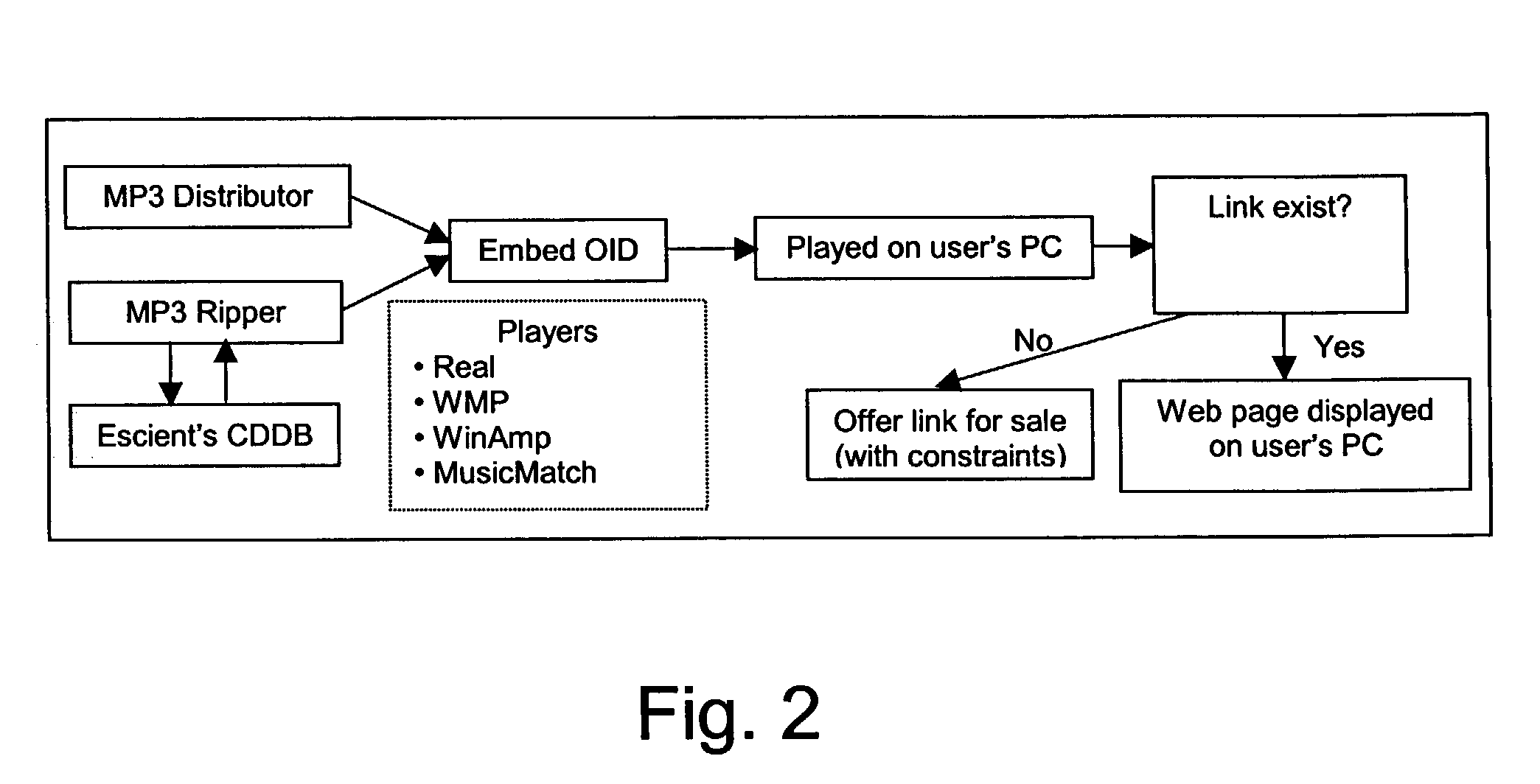Portable devices and methods employing digital watermarking
a technology of digital watermarking and portable devices, applied in the field of portable devices and methods employing digital watermarking, can solve the problem that metadata suffers from the drawback of being vulnerable to being separated from an associated media signal
- Summary
- Abstract
- Description
- Claims
- Application Information
AI Technical Summary
Benefits of technology
Problems solved by technology
Method used
Image
Examples
Embodiment Construction
Linking Audio and Other Media Objects Via Identifiers
[0019]The following sections describe systems and processes for linking audio and other media objects to metadata and actions via an identifier. For the sake of illustration, the disclosure focuses on a specific media type, namely audio signals (e.g., music, sound tracks of audio visual works, voice recordings, etc.). However, these systems, their components and processes apply to other types of media signals as well, including video, still images, graphical models, etc. As described further below, an identifier attached to an audio signal is used to connect that signal with metadata and / or programmatic or device actions. In the context of this document, the terms “media object” and “audio object” refer to an electronic form of a media signal and audio signal, respectively. The linking of media signals applies to objects that are transmitted over wire networks (such as a computer network), wireless networks (such as a wireless tel...
PUM
 Login to View More
Login to View More Abstract
Description
Claims
Application Information
 Login to View More
Login to View More - R&D
- Intellectual Property
- Life Sciences
- Materials
- Tech Scout
- Unparalleled Data Quality
- Higher Quality Content
- 60% Fewer Hallucinations
Browse by: Latest US Patents, China's latest patents, Technical Efficacy Thesaurus, Application Domain, Technology Topic, Popular Technical Reports.
© 2025 PatSnap. All rights reserved.Legal|Privacy policy|Modern Slavery Act Transparency Statement|Sitemap|About US| Contact US: help@patsnap.com



